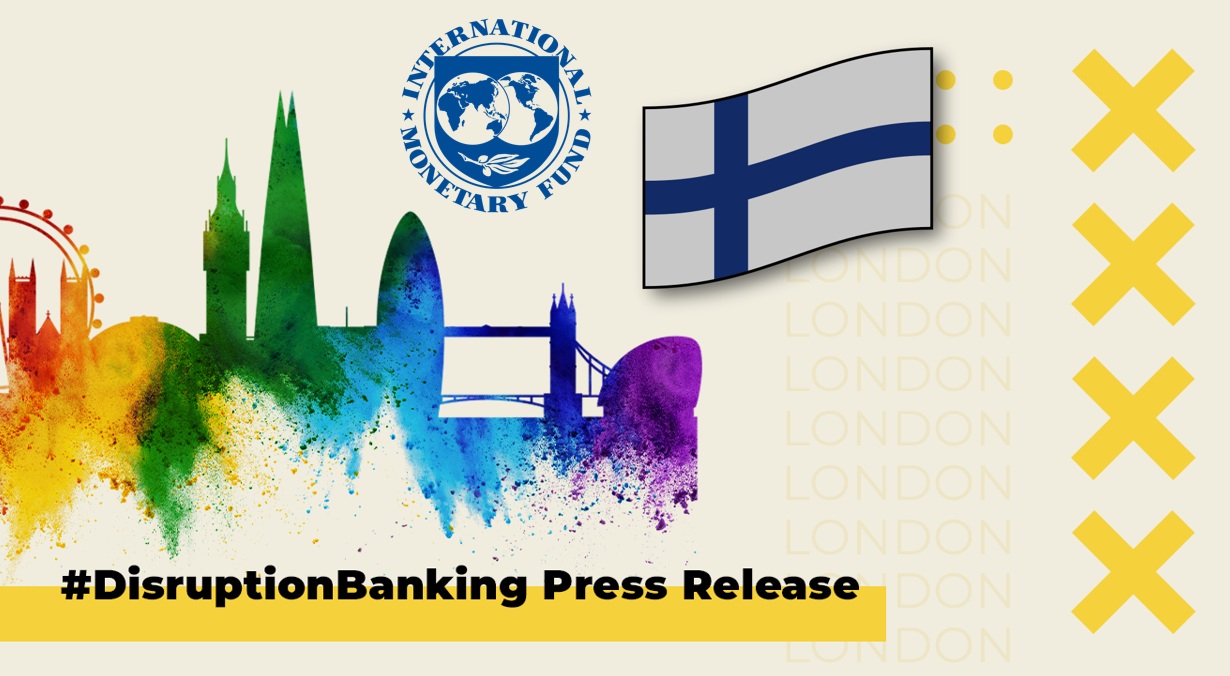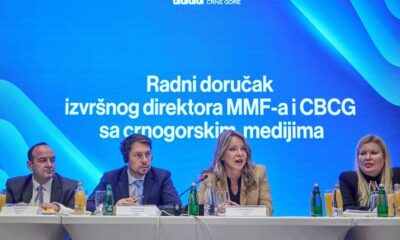Business
IMF Mission Highlights Finland’s Economic Recovery Challenges

A team from the International Monetary Fund (IMF), led by Alex Pienkowski, recently concluded its discussions in Finland as part of the 2026 Article IV Consultation. The mission, held from October 28 to November 7, 2025, involved meetings with key figures including Minister of Finance Riikka Purra and Governor Olli Rehn, as well as representatives from the private sector and labor unions. The discussions aimed to assess Finland’s economic outlook and challenges.
The preliminary findings indicate that the Finnish economy continues to struggle with slow productivity growth and weak private demand. While a stronger recovery is anticipated starting next year, significant risks remain. The fiscal deficit has widened, with the IMF reporting a deficit of 4.5 percent of GDP in 2024, exacerbated by rising defense spending and pressures on health and social services.
Economic Performance and Outlook
Finland’s economic recovery has been gradual, marked by a contraction in 2023 followed by a modest real GDP growth of 0.4 percent in 2024. However, growth slowed again in 2025. Contributing factors include heightened uncertainty, declining house prices, and increased interest rates since 2022, which have dampened private consumption and investment. Despite these challenges, net exports have provided some support.
Looking ahead, the IMF projects annual growth to increase by 1.5 percent in both 2026 and 2027, driven by a recovery in domestic demand, rising real wages, and significant investment projects. Inflation remains stable at around 2 percent, with real incomes returning to pre-pandemic levels.
Despite the anticipated economic rebound, the fiscal position remains concerning. The public debt is expected to approach 90 percent of GDP in 2025, surpassing levels observed in Nordic peers, raising questions about long-term sustainability.
Fiscal Policy Recommendations
The IMF emphasizes the need for credible fiscal consolidation efforts to lower debt over the medium term. Although some fiscal adjustment is expected next year, with a projected modest reduction in the deficit, the overall fiscal deficit is anticipated to remain above 3 percent in the following years. The IMF suggests that authorities should aim for consolidation of 1.5 billion EUR annually until the fiscal balance is achieved and debt begins to decline.
The new national fiscal framework, including the Parliamentary Pact for Fiscal Policy, showcases cross-party commitment to reducing debt over multiple parliamentary cycles. If successful, these measures could enhance fiscal policy stability and bolster market confidence.
In addition to fiscal measures, the IMF calls for enhancing labor supply and productivity. Recent labor market reforms and increased immigration have contributed positively, but further efforts are necessary to stimulate growth. The government is encouraged to streamline unemployment benefits and labor regulations, while also addressing the stagnation in tertiary education attainment.
Moreover, reducing barriers to firm growth and trade within the European Union is vital to boost productivity. Finland’s strong foundation for innovative start-ups faces challenges that limit their competitiveness. The IMF advocates for easing domestic regulations and improving access to funding to stimulate economic dynamism.
Ensuring Financial Stability
While Finland’s banking system remains resilient, several vulnerabilities persist. Banks maintain strong capital positions, and stress tests suggest they can withstand economic downturns. Yet, risks associated with the real estate market, elevated household debt, and cross-country interconnectedness warrant attention.
The IMF supports enhancing the macroprudential toolkit to safeguard financial stability. Existing borrower-based measures, including loan-to-value limits, should remain in place alongside the introduction of new debt-to-income limits. A clear macroprudential framework is essential to manage systemic risks effectively.
The IMF team expressed gratitude to Finnish authorities and private sector representatives for their constructive discussions. The findings of this mission will be compiled into a detailed report for the IMF Executive Board, reflecting the ongoing collaboration and commitment to addressing Finland’s economic challenges.
-

 Entertainment3 months ago
Entertainment3 months agoAnn Ming Reflects on ITV’s ‘I Fought the Law’ Drama
-

 Entertainment4 months ago
Entertainment4 months agoKate Garraway Sells £2 Million Home Amid Financial Struggles
-

 Health3 months ago
Health3 months agoKatie Price Faces New Health Concerns After Cancer Symptoms Resurface
-

 Entertainment3 months ago
Entertainment3 months agoCoronation Street’s Carl Webster Faces Trouble with New Affairs
-

 Entertainment3 months ago
Entertainment3 months agoWhere is Tinder Swindler Simon Leviev? Latest Updates Revealed
-

 World2 weeks ago
World2 weeks agoBailey Announces Heartbreaking Split from Rebecca After Reunion
-

 Entertainment2 weeks ago
Entertainment2 weeks agoCoronation Street Fans React as Todd Faces Heartbreaking Choice
-

 Entertainment4 months ago
Entertainment4 months agoMarkiplier Addresses AI Controversy During Livestream Response
-

 Science1 month ago
Science1 month agoBrian Cox Addresses Claims of Alien Probe in 3I/ATLAS Discovery
-

 Health4 months ago
Health4 months agoCarol Vorderman Reflects on Health Scare and Family Support
-

 Entertainment4 months ago
Entertainment4 months agoKim Cattrall Posts Cryptic Message After HBO’s Sequel Cancellation
-

 Entertainment3 months ago
Entertainment3 months agoOlivia Attwood Opens Up About Fallout with Former Best Friend















